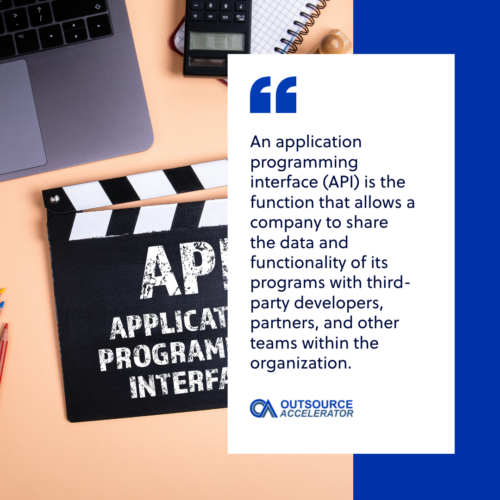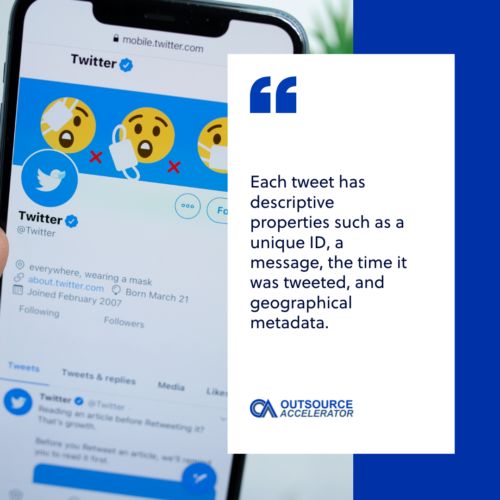Application programming interface (API)
Definition
What is an API?
An application programming interface (API) is the function that allows a company to share the data and functionality of its programs with third-party developers, partners, and other teams within the organization.
An API allows developers to connect services and products and exchange data and capabilities. API usage has expanded over the previous decade to the point that many of today’s popular online applications would be hard to build without them.

How an API works
An API acts as a bridge between an application and a web server, handling data flow between the systems. While the data transfer mechanism differs depending on the web service, all requests and answers are handled through an API.
An application programming interface also provides security since it enables the separation of functionality between the two systems of an application.
Further, to reduce the threat of server attacks, API connections generally contain authorization credentials. To address security threats, the API gateway can restrict access to the applications.
Common API examples
APIs have become a key component of modern businesses. Here are some common application programming interfaces that you may come across:
Universal logins
The universal login feature enables any website to utilize an API from the most widely used platforms like Google or Facebook to easily identify the users. This saves the time and effort of manually signing up and creating a new profile each time you sign up for a new website.
Third-party payments
An example of a third-party payment integration powered by an API is the “Pay with PayPal” button on ecommerce websites. This enables customers to pay for products online without disclosing personal data or providing unauthorized parties with access.
Comparisons of travel bookings
The travel booking experience is enhanced by the use of APIs. This allows application users to access real-time data on the availability of hotels and airlines.
Google Maps
The Google Maps API allows different businesses to provide users with directions and other navigational guides from the platform. It is one of the most well-known illustrations of an excellent API for displaying static or interactive maps.
Each tweet has descriptive properties such as a unique ID, a message, the time it was tweeted, and geographical metadata. Developers may access public tweets and answers on Twitter, and the company’s API allows them to contribute tweets.

Types of APIs
Application programming interfaces are classified into four major categories often used in web-based applications. These types of API indicate the intended scope of use in the organization.
Open API
Open APIs are also known as public APIs. They can be accessed by using the HTTP protocol since they have particular API locations request and response patterns.
Partner API
Partner APIs are application programming interfaces made available to or provided by key business partners. To use partner APIs, users will still need to go through an onboarding procedure and get login credentials.
Internal API
Internal APIs are application programming interfaces that are not visible to other users outside of the firm. This type of API across various internal development teams is meant to boost productivity and communication.
Composite API
Composite APIs are made up of various data or service application programming interfaces. These services enable developers to use a single call to reach several endpoints. Composite APIs are valuable in microservices architectures since a single project may require input from several sources.







 Independent
Independent




